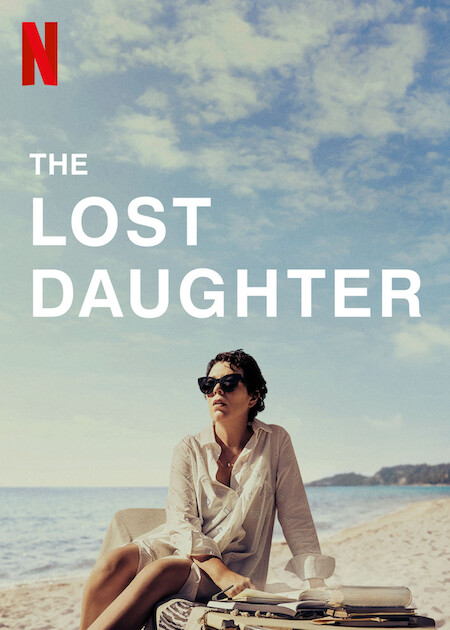From book to movie, “The Lost Daughter” continues to impress with Netflix adaptation. PHOTO CREDIT: Netflix.com
When I picked up “The Lost Daughter” by Elena Ferrante at the beginning of the year, I was concerned as to just how Maggie Gyllenhaal was going to make a two-hour movie from just 144 pages of text written in the first-person, full of internal thoughts and comparatively minimal dialogue.
After finishing it, I was concerned as to how the Netflix film of the same name would manage to capture all of Leda’s character within the confines of the screen.
However, after watching the adaptation, I can say all of my worries were unfounded and Gyllenhaal’s Best Adapted Screenplay Academy Award nomination is well earned.
“The Lost Daughter” is a psychological drama that’s hard to explain without giving any of the many twists and turns away, which is ironic considering it’s also a very low-stakes drama in terms of the present conflict. It follows Leda, played by Olivia Colman, who could win a second Oscar for her performance, a 48-year-old woman alone on vacation in Greece. At the beach, she becomes intrigued by Nina (Dakota Johnson) and her young daughter. Her fascination with them and their relationship cause her to think back on her relationship with her own two daughters who are now 23 and 25.
On the surface, it’s really not an exciting story, but the main drama, that I won’t spoil, involves a missing doll that is quite exaggerated by Nina and her family. Still, it’s an interesting one, if only because Leda is such a complex, interesting woman who clearly sees herself in Nina, who proves to have her own layers that Leda wants to uncover. Most of this is conveyed in the book through Ferrante’s straightforward, stream of consciousness writing.
Through the first-person narration, the reader is able to get to know Leda, her twisted inner workings, a history she appears to want to bury and forget and her many complicated relationships extremely well. I knew that this would be difficult to translate to the screen and given that it’s Gyllenhaal’s feature debut as both the writer and director, I wasn’t too confident in how it would come across. Still, I had faith in Colman, who is often praised for how expressive she is, especially when playing characters who are trying and failing to repress their emotions, as Leda does often. It did not surprise me at all, before even watching the film, to learn that Colman had received her third Oscar nomination, and now having watched it, I can say it’s deserved.
The other acting nomination the film received, was for Jessie Buckley’s performance as the younger version of Leda. Together, Buckley and Colman give Leda her depth and intricacy originally, and Gyllenhaal, an Academy Award-nominated actress herself, did a great job adapting some of what initially were her thoughts in the book into dialogue and quiet moments that allow the actresses to shine. Buckley, earning her first nominations from major associations for her portrayal steals the show for me. I expected Colman to be on top of her game, which I was familiar with through “The Favourite” and her more underrated comedic work in “Fleabag,” but was taken aback by how Buckley navigated Leda’s mood swings and emotional outbursts in a way that made me feel for the character rather than criticize. Johnson isn’t given as much to do, but she proved she can hold her own against Colman and I look forward to her hopefully taking on more roles that allow for her to be mentioned in major award conversations.
Beyond the screenplay, this film is gorgeous. Gyllenhaal captures the location beautifully and the way she shoots Johnson’s Nina in the earlier beach scenes allows the viewer to become just as curious as Leda about her character. The use of flashbacks and cuts brilliantly parallels Nina and Leda and the past and present to give an insight into Leda’s mind that would be unnatural in dialogue. The quiet moments meant for judgment and introspection also allow for a building tension that makes you forget just how low-stakes everything should be from an outside perspective.
While Gyllenhaal earned a Golden Globe nomination for Best Director, the Academy overlooked her directorial work while nominating her screenplay. I can’t help but draw comparisons to 2020 when the Academy was criticized for sexism when they nominated Greta Gerwig for her adapted screenplay of “Little Women” but not for Best Director. Gyllenhaal’s work is especially impressive given “The Lost Daughter” is her feature directorial debut.
I do think “The Lost Daughter” suffers from running a bit too long, and there were some scenes from that could have been cut, but, overall, I was pleasantly surprised at how well Gyllenhaal was able to take on the task of adapting Ferrante’s novel. I think I enjoyed it even more having read the novel and I’d recommend checking out the quick read if you’re interested in or have already seen the film if only to see just how a film earns a Best Adapted Screenplay Oscar nomination.




